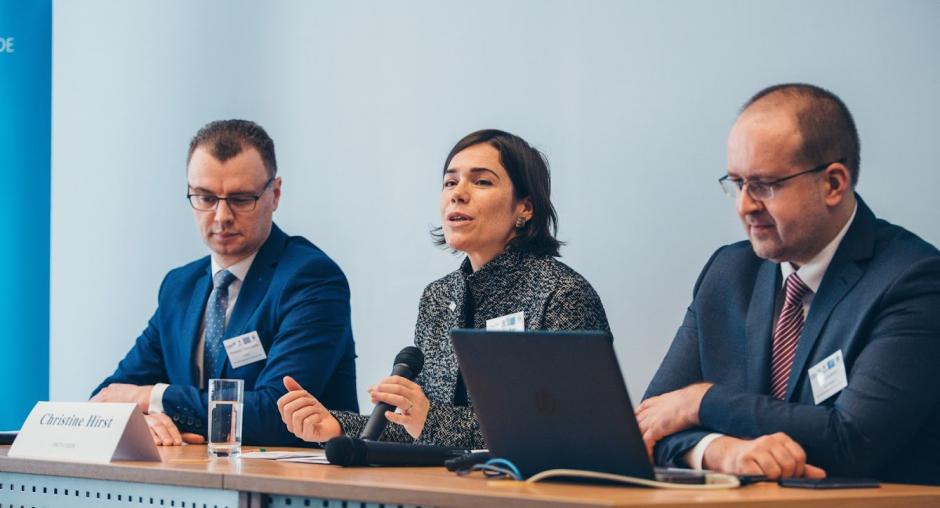Good practices in managing postponement of removal or voluntary return of irregular migrants focus of OSCE/ODIHR event in Riga

Good practices for managing situations where the removal or voluntary return of irregular migrants has been postponed, as well as ensuring the rights of such persons, were discussed at the conference co-hosted by the OSCE Office for Democratic Institutions and Human Rights (ODIHR) in Riga on 22 and 23 March 2017.
The event, held in co-operation with the Latvian Contact Point of the European Migration Network of the country’s Office of Citizenship and Migration Affairs, brought together 75 participants, mostly officials responsible for migration management issues from Armenia, Austria, Azerbaijan, Belgium, Croatia, Estonia, Georgia, Germany, Latvia, Lithuania, Luxembourg, Moldova, Norway, Poland, Slovenia and Ukraine.
The topics discussed included international legal standards and relevant OSCE commitments, national legislation and good practices for the postponement of removal or voluntary return.
“Holding this conference is one of the ways we assist OSCE participating States during the ongoing migration and refugee crisis,” said Christine Hirst, Deputy Head of the ODIHR Democratization Department. “Advancing dialogue and sharing good practices are important in helping authorities address emerging problems while respecting OSCE commitments and other international standards.”
“This conference was timely and provided an excellent opportunity to review legal and practical obstacles to return, as well as ways to improve our procedures, while ensuring the protection of human rights and legal safeguards of individuals who cannot be returned,” said Dimitrijs Trofimovs, Deputy State Secretary at Latvia’s Ministry of Internal Affairs.
Experts from the European Commission, the Council of Europe, the International Organization for Migration, the UNHCR Regional Representation for Northern Europe and the Secretariat of the Council of the Baltic Sea States, as well as representatives from civil society organizations and academia also participated.
